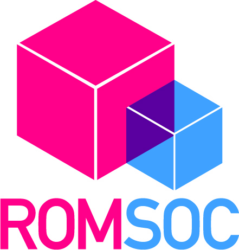Product development today is increasingly based on simulation and optimization of virtual products and processes. Mathematical models serve as digital twins of the real products and processes and are the basis for optimization and control of design and functionality. The models have to meet very different requirements: Deeply refined mathematical models are required to understand and simulate the true physical processes, while less refined models are the prerequisites to handle the complexity of control and optimization. To achieve the best performance of mathematical modeling, simulation, and optimization techniques (MSO), in particular in the industrial environment, it would be ideal to create a complete model hierarchy.
The currently most favored way in industrial applications to achieve such a model of hierarchy is to use a sufficiently fine parameterized model and then apply model order reduction (MOR) techniques to tune this fine level to the accuracy, complexity, and computational speed needed in simulation and parameter optimization.
Although the mathematical models differ strongly in different applications and industrial sectors, there is a common framework via an appropriate representation of the physical model.
The main objective of the ROMSOC project is to further develop this common framework and, driven by industrial applications as optical and electronic systems, material engineering, or economic processes, to lift mathematical MSO and MOR to a new level of quality. The development of high-dimensional and coupled systems presents a major challenge for simulation and optimization and requires new MOR techniques.
ROMSOC is a European Industrial Doctorate (EID) project that will run for four years bringing together 15 international academic institutions and 11 industry partners. It supports the recruitment of eleven Early Stage Researchers (ESRs) working on individual research projects. In order to train the eleven young researchers for the challenges of multi-disciplinary and international co-operation, their scientific work is embedded in a jointly organized doctoral program, in which lectures and workshops address both scientific content and soft skills. The researchers are supervised by expert tandems, each consisting of an academic and an industrial representative. They spend at least half the time in a company, the rest in a research facility.
European Industrial Doctorate Programs (EIDs) are sponsored by the European Commission in the framework of Horizon 2020. They are one type of „Innovative Training Networks“, which are part of the Marie Skłodowska-Curie Actions (MSCA) that support the carriers of scientists and encourage their transnational, intersectoral and interdisciplinary mobility.

